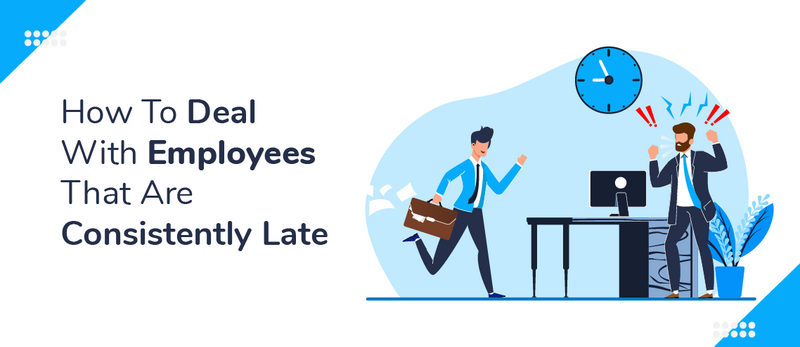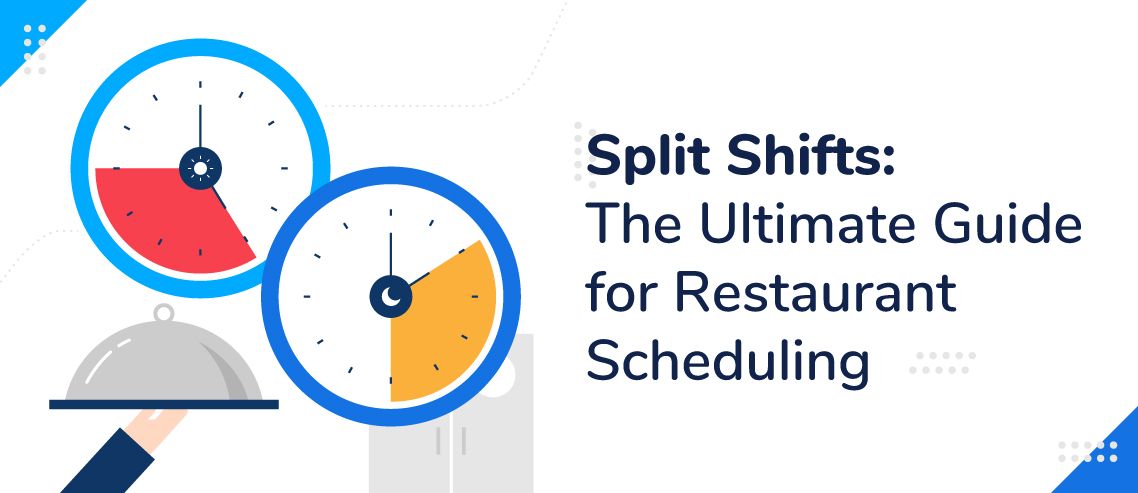How To Deal With Employees That Are Consistently Late

Running a restaurant is no easy business: you have customers to please, food to make, procedures to follow, and employees to keep happy. Your hands are full 100% of the time, which means it can be incredibly frustrating to deal with employees that are consistently late.
Hopefully the majority of your staff are people you can count on to be on time and help you get the job done. But every once in a while you’re certain to encounter an employee that doesn’t live up to the standards you’ve set.
Being late for work may not seem like a big issue, but the truth is that it can have a disastrous effect on your kitchen and your business. Being even a few minutes late can set your opening tasks, or your cooking staff, back so far that it’s virtually impossible to recover when faced with a huge rush of customers in a busy period.
There’s only so much you can do to change someone’s approach to being on time for work – at some point, they’ll need to take responsibility for their actions. But as an employer and business owner, there are some measures you can take to deal with employees who are late. Below are some tips to help you navigate this tricky situation.
1. Be clear about policies
Often times, newer employees think that arriving to work 5 or 10 minutes after their start time is “no big deal.” There’s an easy way to address this issue before your new employee’s first day: when you make the decision to hire them, be clear in your new employee materials about your policy about late employees.
For some restaurants, this means a clear, detailed explanation of disciplinary action for late employees. For others, it simply means a reminder that all staff should arrive 5 minutes early for their scheduled shift. Whatever your policy, communicating it early and clearly will ensure that your staff has no excuse for thinking that tardiness is acceptable.
2. Be consistent with discipline
When you’ve clearly laid our your policy, every employee should know exactly what to expect in terms of discipline if they arrive late for their shift. Still, you’ll always run into situations when employees can’t help but arrive late for a shift – and whether it’s extenuating circumstances or irresponsibility, you need to approach each situation with a consistent level of action.
Each and every time an employee arrives late, take a moment to sit down and discuss the circumstances with them. Make sure you fully understand the situation before disciplining an employee, but when you do, be consistent. A consistent approach to discipline will create an environment with structure and fair expectations, and hopefully minimize future tardiness.
3. Get to the root of the problem
Unfortunately, sometimes a consistent disciplinary plan isn’t enough. When you have an employee who is late over and over, it’s time to sit them down for a serious one on one conversation to get to the root of their late arrivals.
In some cases, you may find out that the underlying cause has a simple solution: for example, an unreliable mode of transportation to work. Or their shift needs adjusted to match their hectic home schedule. In this case, encourage your employee to get help from friends or family. In other cases, the issue may not have a simple solution, and you’ll need to be very clear with employees about your expectations of them to solve these problems.
As you get more experience having these conversations with staff, you’ll be better equipped to recognize these potential problems as you look to hire. Asking questions about reliable modes of transportation to work, for example, would help uncover issues with car problems. This will help you make hires who will take their attendance at work seriously, and work to be on time.
4. Don’t tolerate repeat offenders
Everyone has their limits, and when you’ve laid out a clear policy, disciplined tardy employees, and made an effort to work with them to solve the problem, there’s only one thing left to do: terminate the employment. Although it may feel like a drastic measure, it’s an important one. The rest of your staff needs to see that you respect the effort that they put in and that you won’t tolerate sub-par performance from their peers. Make the reason for termination very clear, referring back to the policies and disciplinary action along the way, and then work to find an employee who will take pride in arriving at work on time every day.
Part of running a restaurant is dealing with unpleasant issues like this one. But, with proper training and preparation, you’ll be able to tackle problematic late employees by being straightforward and consistent with your approach.
JD enjoys teaching people how to use ZoomShift to save time spent on scheduling. He’s curious, likes learning new things everyday and playing the guitar (although it’s a work in progress).



